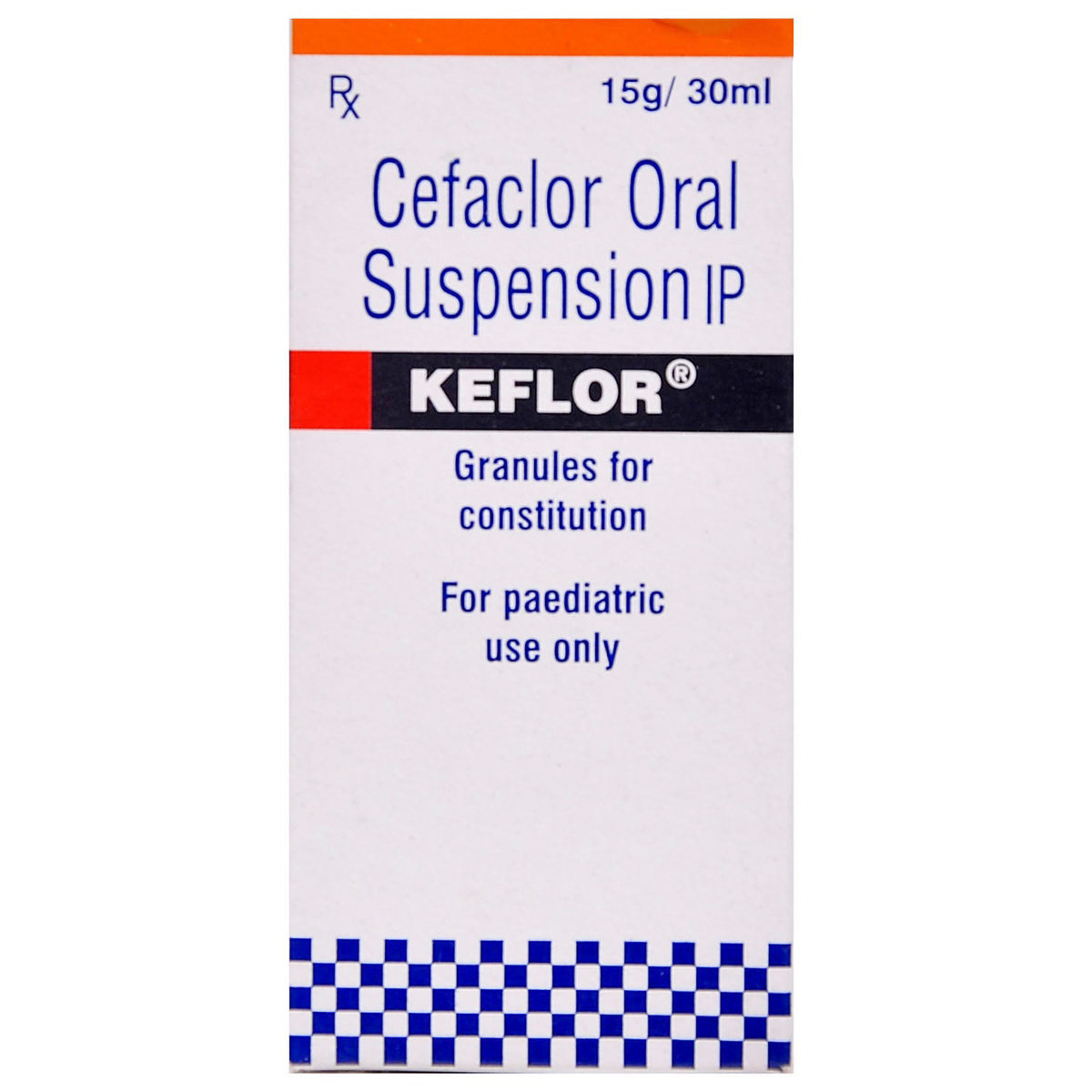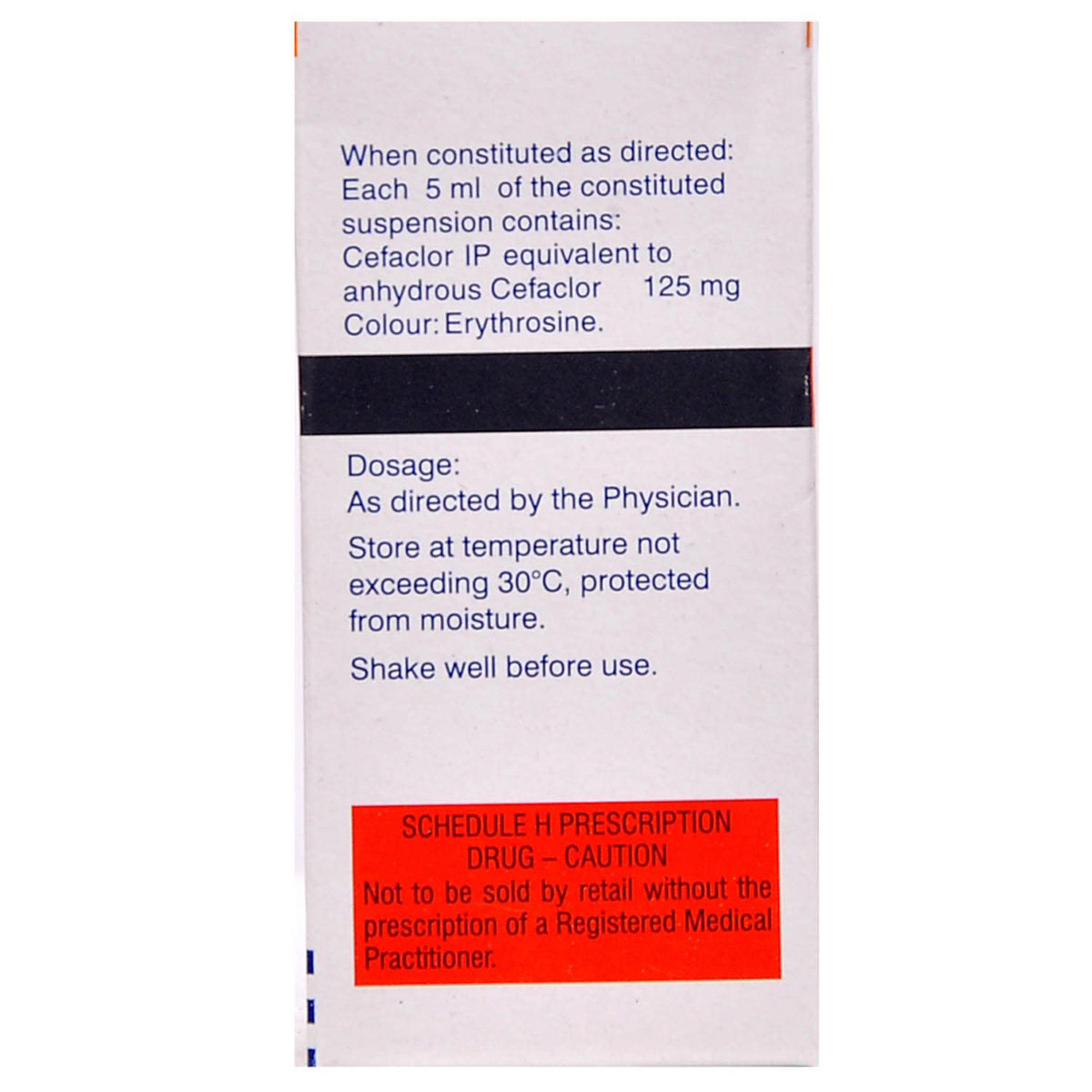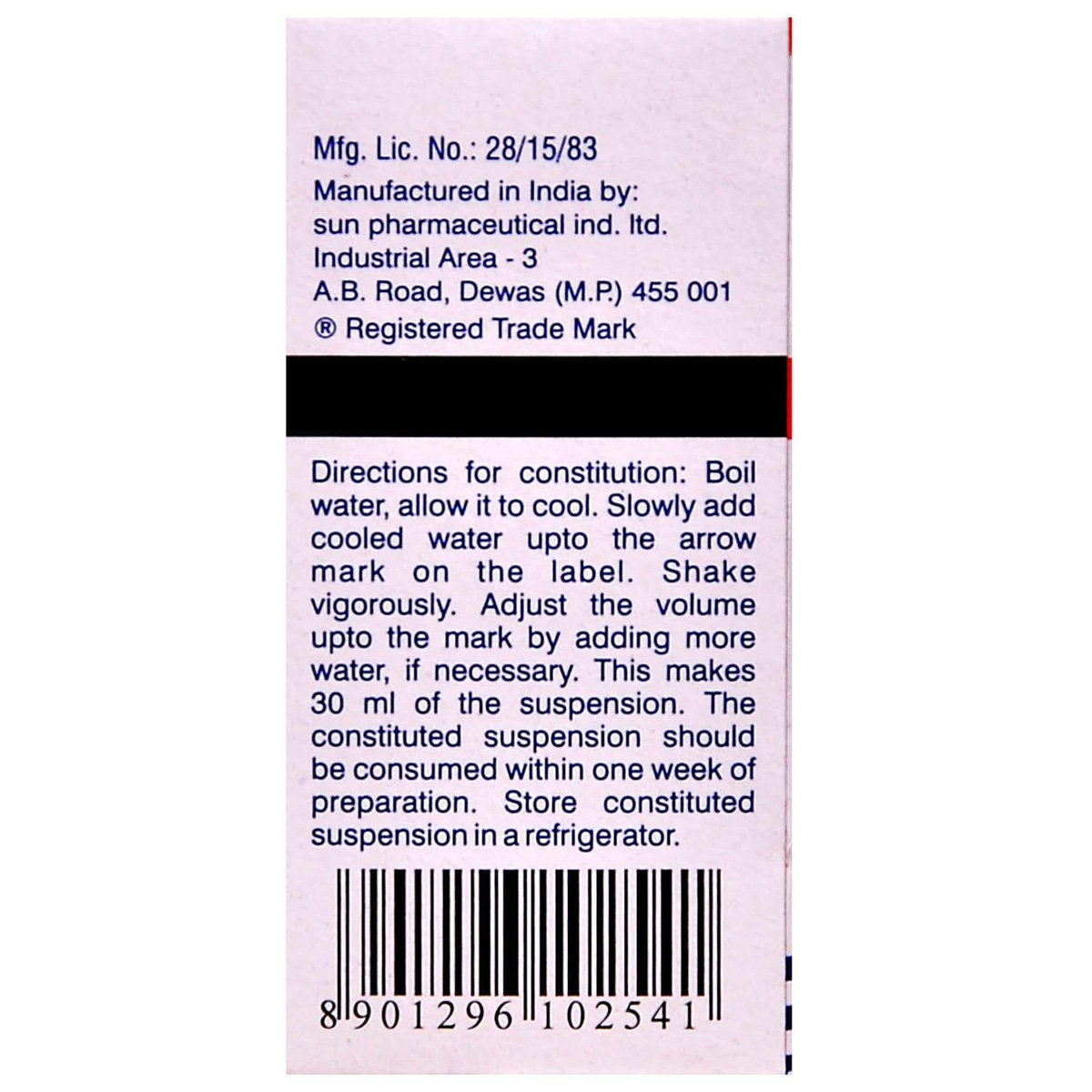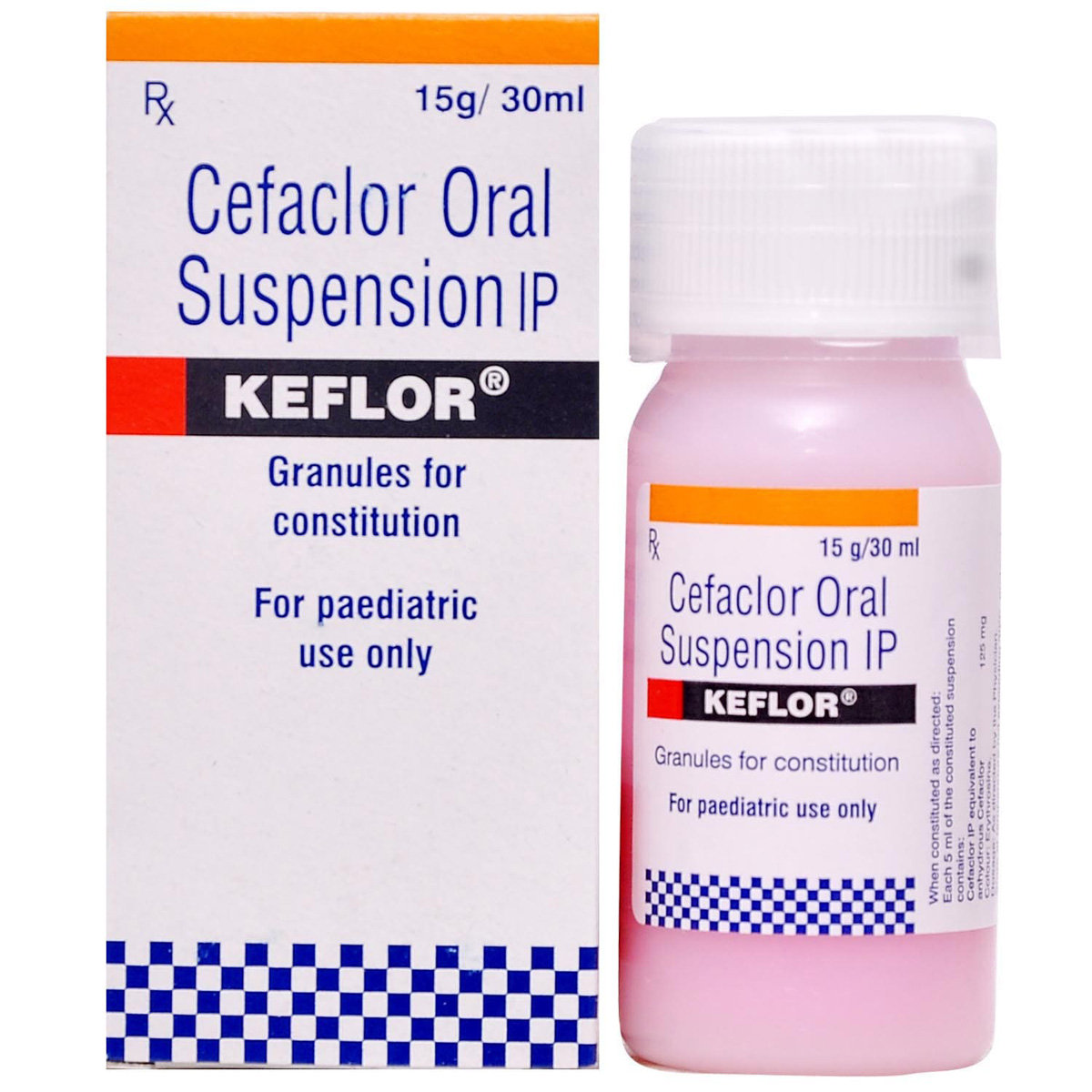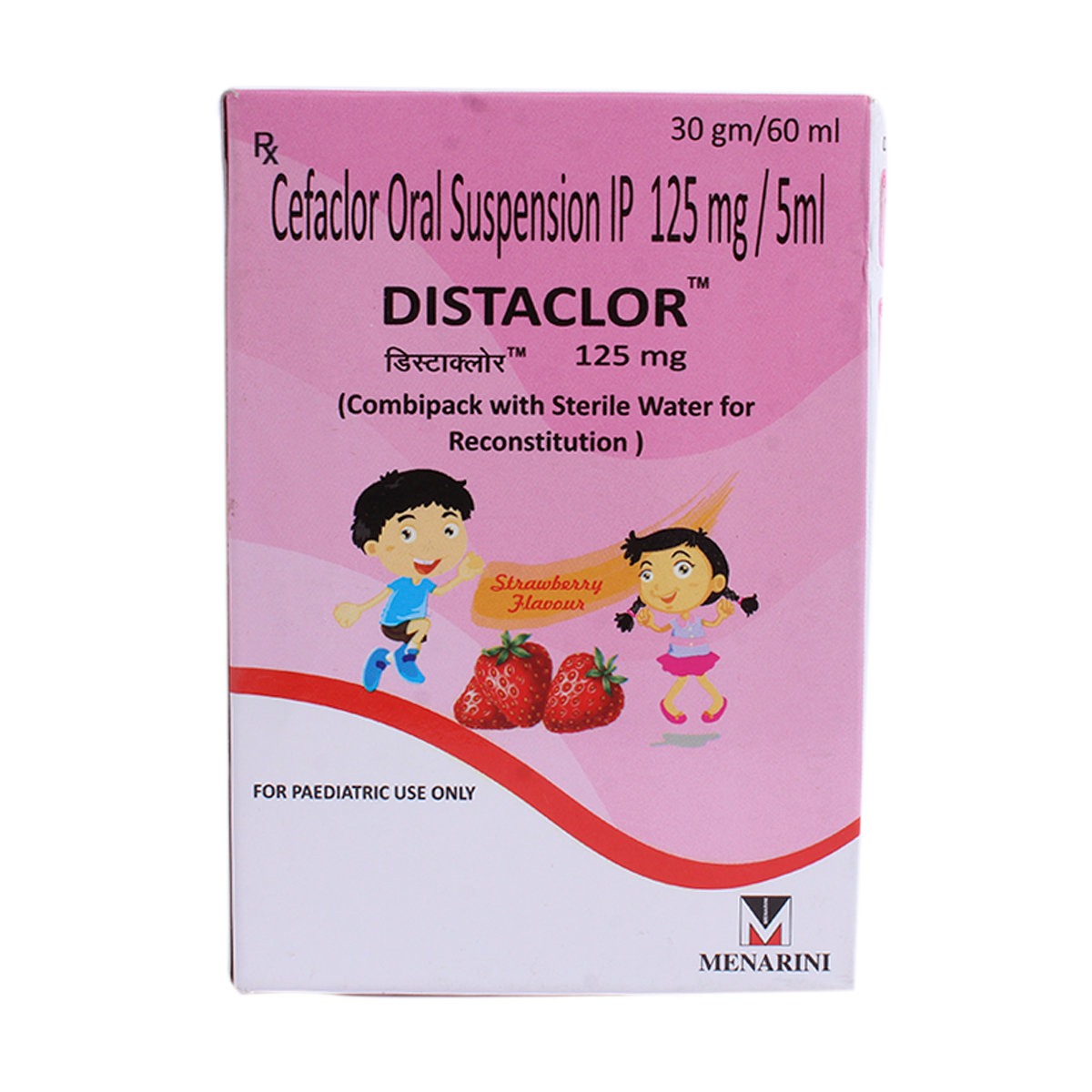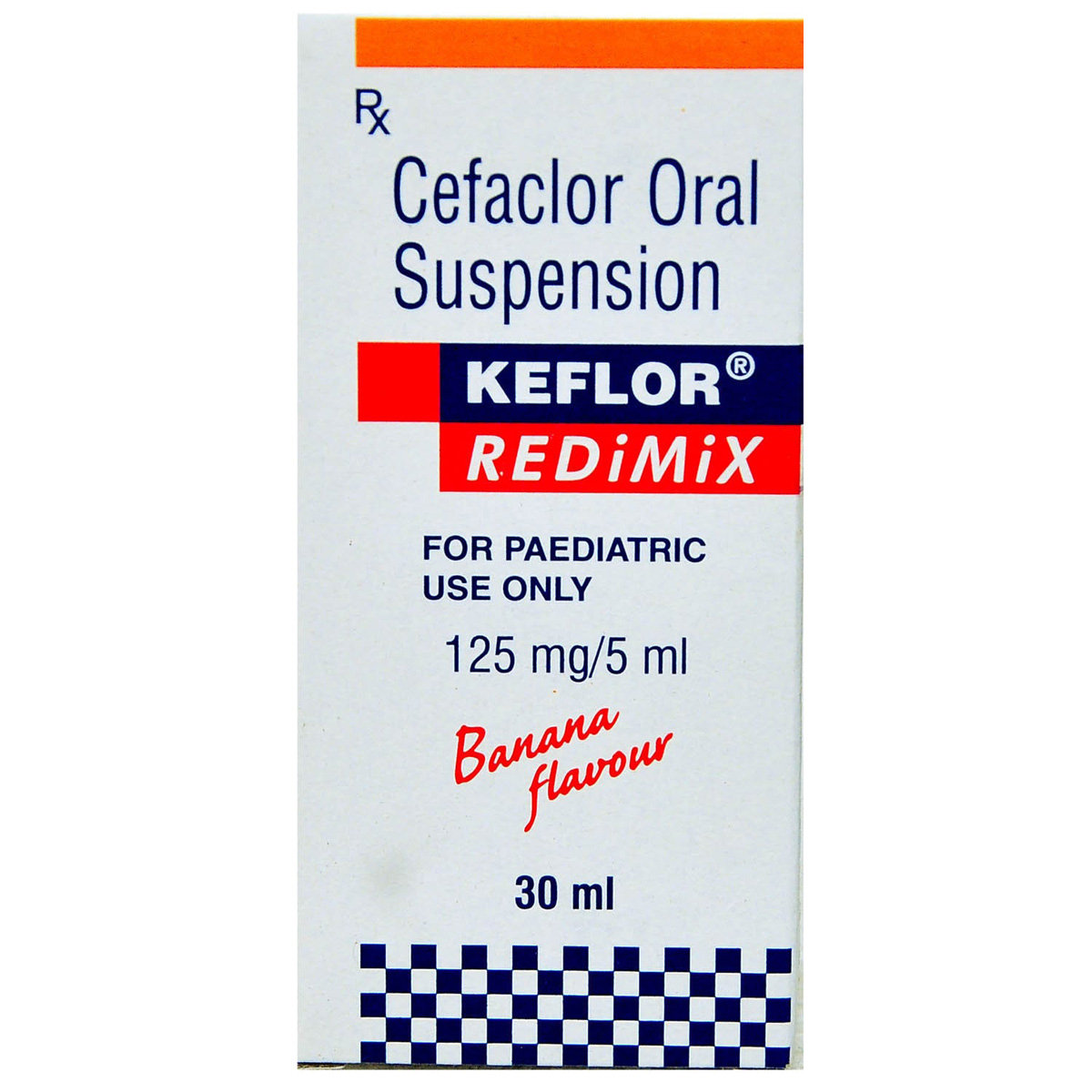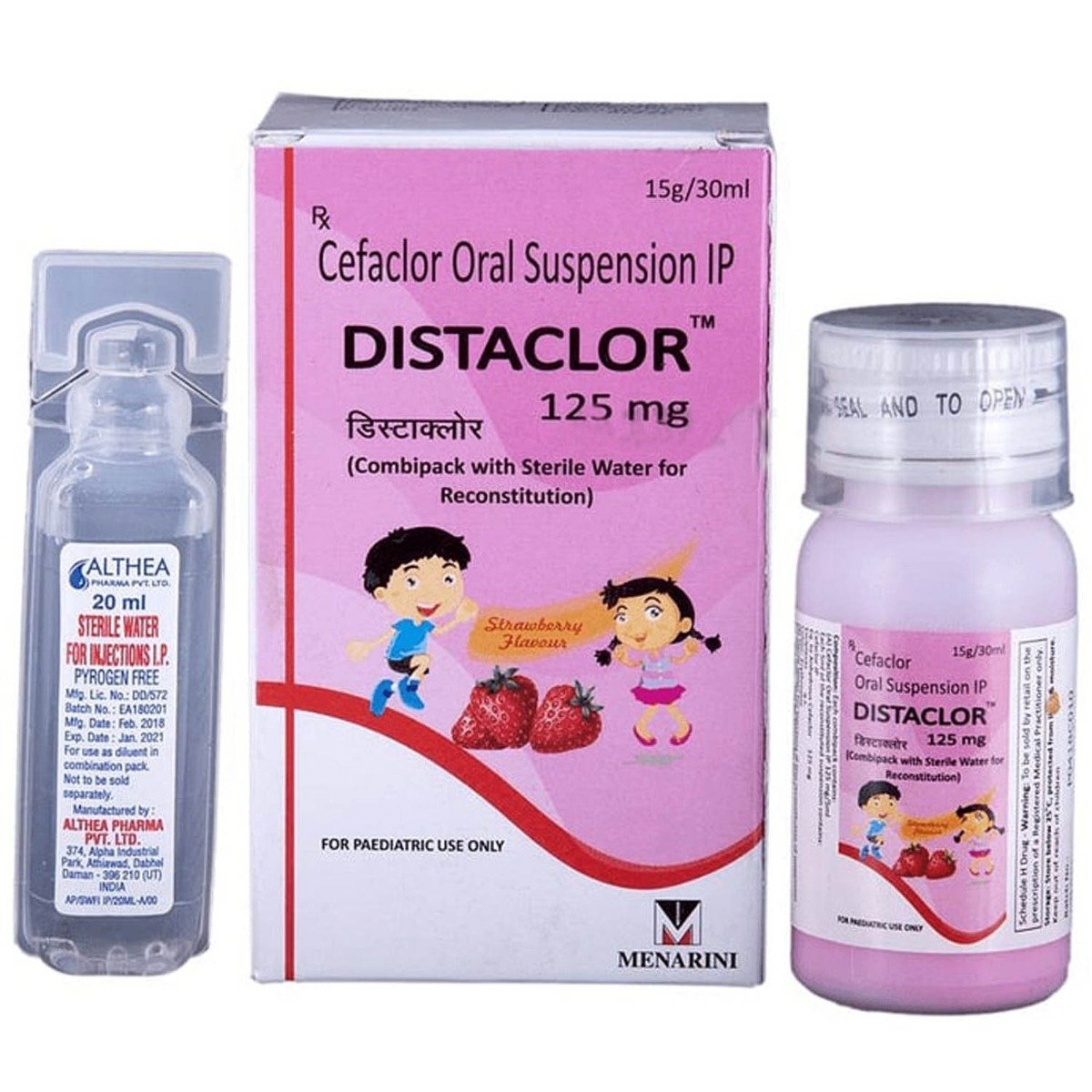Keflor Oral Suspension 30 ml
MRP ₹202.5
(Inclusive of all Taxes)
₹30.4 Cashback (15%)
Provide Delivery Location
Online payment accepted
 Prescription drug
Prescription drugWhats That
 11 people bought
11 people bought Composition :
Manufacturer/Marketer :
Consume Type :
Expires on or after :
Return Policy :
About Keflor Oral Suspension
Keflor Oral Suspension belongs to a class of drugs called 'antibiotics' used to treat several bacterial infections of the urinary tract, respiratory tract, ears, nose, throat, skin and soft tissue. The bacterial infection is a condition in which harmful bacteria grows in the body and cause infection. It can infect any part of the body and multiple very quickly. Keflor Oral Suspension does not work against infections, flu or cold symptoms caused by the virus.
Keflor Oral Suspension contains Cefaclor an antibiotic that works by interfering with the formation of the bacterial cell wall (a protective covering) necessary for their survival. Thereby damages the bacterial cell wall and kills the bacterial cell. Thus, it prevents the growth of bacterial infection.
Take Keflor Oral Suspension was prescribed by your doctor. You are advised to take Keflor Oral Suspension for as long as your doctor has prescribed it for you based on your medical condition. You may experience vomiting, nausea, diarrhoea, vaginal itching, fever, and rash in some cases. Most of these side effects of Keflor Oral Suspension do not require medical attention and gradually resolve over time. However, if the side effects persist or worsen, please consult your doctor.
If you are allergic to Keflor Oral Suspension, penicillins or any other medicines, please tell your doctor. If you are pregnant or breastfeeding, please inform your doctor before taking Keflor Oral Suspension. Keflor Oral Suspension in tablet form is not recommended for children, but syrup form may be used in children above 1 month only in doses as prescribed by a doctor. If you are on dialysis, inform your doctor before taking Keflor Oral Suspension to reduce the dose accordingly. Keflor Oral Suspension may interact with certain tests such as glucose (sugar) in urine and give unusual results. Therefore, inform the doctor that you are using Keflor Oral Suspension before undergoing any tests.
Uses of Keflor Oral Suspension
Directions for Use
Tablet: Take it with or without food as advised by the doctor. Swallow it as a whole with a glass of water. Do not break, crush or chew it. Syrup: Take it by mouth using the measuring cup provided with the pack. Shake the bottle well before each use. Oral drops: Check the label for directions before use. Take it as advised by the doctor with the help of marked dropper.
Key Benefits
Keflor Oral Suspension contains Cefaclor, a broad-spectrum antibiotic that acts against both aerobic (grow in the presence of oxygen) and anaerobic (grow in the absence of oxygen) gram-negative and gram-positive bacteria. It is used in the treatment of several bacterial infections of the urinary tract, respiratory tract, ears, nose, throat, skin, and soft tissue. Keflor Oral Suspension interferes with the formation of the bacterial cell wall (a protective covering) necessary for their survival. Thereby damages the bacterial cell wall and kills bacteria.
Storage
Drug Warnings
If you are allergic to Keflor Oral Suspension, penicillins or any other medicines, please tell your doctor. If you have kidney problems, diabetes, stomach or intestinal disorder such as inflammation of the large intestine, inform your doctor before taking Keflor Oral Suspension. If you are pregnant or breastfeeding, please inform your doctor before taking Keflor Oral Suspension. Keflor Oral Suspension in tablet form is not recommended for children, but syrup form may be used in children above 1 month only in doses as prescribed by a doctor. If you are on dialysis, inform your doctor before taking Keflor Oral Suspension so that the dose may be reduced accordingly. Keflor Oral Suspension may interact with certain tests such as glucose (sugar) in urine and give unusual results. Therefore, inform the doctor that you are using Keflor Oral Suspension before undergoing any tests. You are recommended to complete the full course of Keflor Oral Suspension as prescribed by your doctor for effective results.
Diet & Lifestyle Advise
Take probiotics after completing the full course of Keflor Oral Suspension to restore some healthy bacteria in the intestines that may have been killed. Taking probiotics after antibiotic treatment can reduce the risk of antibiotic-associated diarrhea. Certain fermented foods like cheese, yogurt, kombucha, sauerkraut, and kimchi can restore the good bacteria of the intestine.
Include fiber-rich foods, as they can be easily digested by your gut bacteria, which helps stimulate their growth. Thus, fiber-rich foods may help restore healthy gut bacteria after a course of antibiotics. Whole grains such as whole-grain bread and brown rice should be included in your diet.
Make sure you drink plenty of water or other fluids every day while you are taking Keflor Oral Suspension.
Avoid alcohol consumption as it may increase adverse effects.
Side Effects of Keflor Oral Suspension
Nausea
- Vomiting
- Diarrhoea
- Vaginal itching
- Fever
- Rash
Habit Forming
Therapeutic Class
All Substitutes & Brand Comparisons
RX
Out of StockActaclor 125mg Suspension
₹125
(₹1.88/ 1ml)
69% CHEAPERRX
Out of StockHalocef 125mg Suspension
Aristo Pharmaceuticals Pvt Ltd
₹76.1
(₹2.28/ 1ml)
62% CHEAPERRX
Out of StockBaclorum 125mg Oral Suspension
Neon Laboratories Ltd
₹80.9
(₹2.43/ 1ml)
60% CHEAPER
Author Details
We provide you with authentic, trustworthy and relevant information
FAQs
Drug-Drug Interactions Checker List
- WARFARIN
- PROBENECID
Special Advise
If you are about to undergo blood or urine tests, inform your doctor that you are taking Keflor Oral Suspension as it may interfere with these tests.
Disease/Condition Glossary
Bacterial infection: It is a condition in which harmful bacteria grow in the body and cause infection. It can target any part of the body and multiply very quickly. Bacteria come in three basic shapes, namely spherical, rod, or spiral-shaped. Bacteria may be gram-positive (have thick cell walls) or gram-negative (do not have cell walls). Appropriate tests are done to identify bacterial strains, and based on the results, proper medication is prescribed. Some common symptoms of bacterial infection include cough, fever, and tiredness.

Have a query?
Alcohol
Safe if prescribed
Avoid consumption of alcohol with Keflor Oral Suspension as it may increase the risk of adverse effects.
Pregnancy
Consult your doctor
Keflor Oral Suspension is a category B pregnancy drug and is given to pregnant women only if the doctor thinks benefits outweigh risks. Please consult a doctor if you are pregnant or planning for pregnancy.
Breast Feeding
Consult your doctor
Keflor Oral Suspension may be excreted in human milk in small amounts. Therefore, it is given to breastfeeding mothers only if the doctor thinks benefits are greater than risks. Please consult a doctor if you are breastfeeding.
Driving
Safe if prescribed
Keflor Oral Suspension usually does not affect your ability to drive or operate machinery.
Liver
Consult your doctor
Take Keflor Oral Suspension with caution, especially if you have a history of Liver diseases/conditions. The dose may be adjusted by your doctor as required.
Kidney
Consult your doctor
Take Keflor Oral Suspension with caution, especially if you have a history of Kidney diseases/conditions. The dose may be adjusted by your doctor as required.
Children
Safe if prescribed
The tablet form is not recommended for children. However, the syrup form should be used with caution in children above 1 month if prescribed by a doctor.

